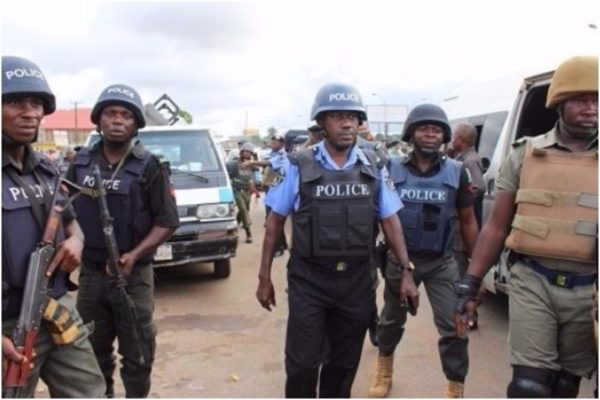The Socio-Economic Rights and Accountability Project (SERAP) has released a new public survey which rates the Nigeria Police as the most corrupt institution in the country.
The SERAP report entitled “Nigeria: Corruption Perception Survey”, listed high levels of corruption in public institutions in the country since 2015.
The police tops the list of five institutions surveyed, with officials of the power sector following closely.
The survey, which was carried out between September and December, covered the police, judiciary, power, education and health sectors, was to assess the state of corruption in law enforcement and public service provision.
“A bribe is paid in 54 percent of interactions with the police. In fact, there is a 63% probability that an average Nigerian would be asked to pay a bribe each time he or she interacted with the police. That is almost two out of three,” read a statement Kolawole Oluwadare, SERAP deputy director, issued on the report.
Akin Oyebode, chairman of the panel, which released the report, said the development of a people is almost “inversely proportional to the level of corruption”.
“Nigeria is looked upon as a giant of Africa. Yet Nigeria could not conduct free, fair and credible elections,” he said.
“It is a smear on the image of Nigeria. If we do away with selective enforcement and condonation of corruption, we will build and live in a better society. Corruption is a refined form of stealing. The politicians are stealing our common patrimony.
READ ALSO: YPP Senator-elect, Ifeanyi Ubah dumps party for APC one month after election
“From the analysis of the anti-corruption legal and institutional framework in Nigeria, the following cross-cutting issues emerged: there is lack of political goodwill to consistently enforce the different anti-corruption laws; inadequate funding for the various anti-corruption agencies; weak public support and/or ownership of anti-corruption initiatives; poor clarity of roles between various anti-corruption agencies; and public perceptions of politicisation of corruption arrests and prosecutions,” the report read.
“Bribery experiences were interrogated and recorded in the key sectors of education, health, the police, judiciary and power. Data analysis was conducted under five different and interrelated variables. There was a 63% probability that an average Nigerian would be asked to pay a bribe each time he/she interacted with the police. The likelihood of bribery in the power sector stood at 49%. With the chances of encountering bribery at the judiciary, education and health services standing at 27%, 25% and 20% respectively.”
According to the report, for every 100 police interactions reported by the respondents, there was a bribe paid in 54 interactions. The prevalence levels stood at 37% in the power sector and 18% in education,17.7% in the judiciary and 14% in the health sector.
It was gathered that fifty-one percent of the individuals who paid bribes to the police and 35 percent to the power sector believed this was the only way to access the services sought from the institutions.
The police and judiciary had the largest proportion of total bribes paid at 33 percent and 31 percent respectively. On the other hand, Bribes paid for education, power and health services accounted for 19 percent, 10.9 and 5 percent respectively of all bribes reported.
The average amount of bribe paid by the respondents was highest among those who paid to the judiciary at about Naira 108,000 (US$ 298). All the other institutions ranked lower on this variable with Naira 12,253 and 11,566 reportedly paid to the police and education sectors, and Naira 6,462 and 5,143 paid for health and power services respectively.
It will be recalled that World Internal and Police Security Index rated Nigeria Police force as the worst in the world in 2017.

